Save for the recent showers, the heat has been punishing the last few weeks. The rise in mercury has got residents opting for different habits and your pets are no different.
Summer months call for some strict precautions for pets that will help your furry friends be safe, healthy and comfortable —
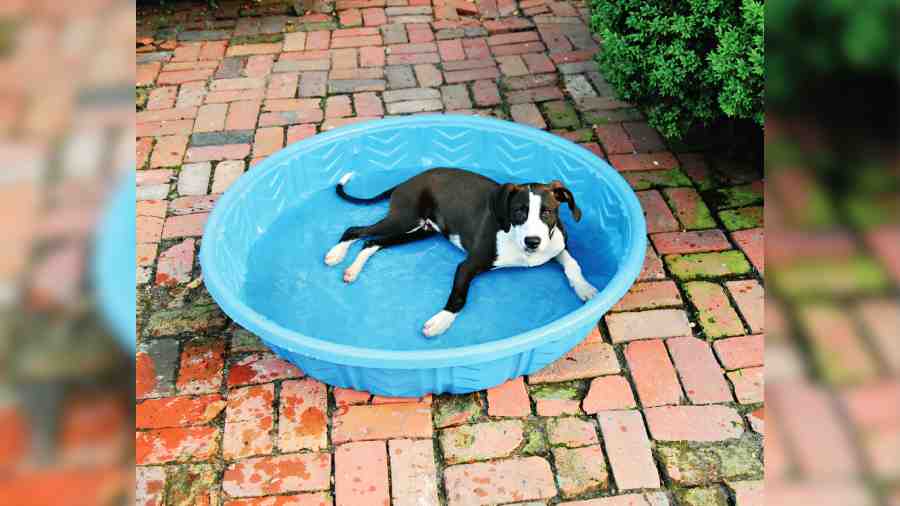
1. Walks- Keep the temperature in mind when walking your pets. Given how hot it has been getting, it is advised to walk them early in the morning or late in the evening. This will help prevent heat strokes and footpad burning.
If they undergo excessive panting it is better to keep them indoors. Keep them in air-conditioned rooms as per the requirement of the day.
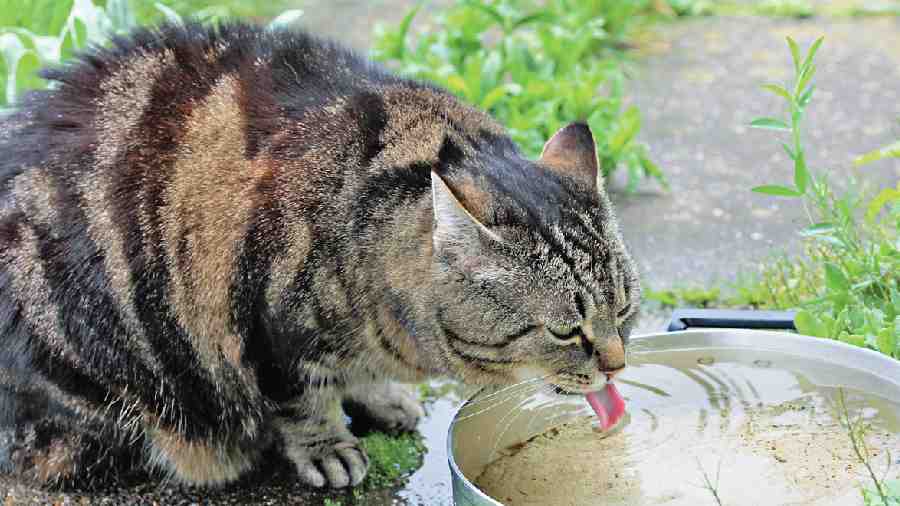
2. Drinking water- Ample clean drinking water should be provided to your pet to avoid dehydration.
3. Ticks and fleas- Ectoparasites, especially ticks and fleas, are a big threat in summer months. Ticks belonging to the genus Rhipicephalusare are most commonly encountered here. Ehrlichiacanis, Hepatozooncanis, Mycoplasma hemocanis, Anaplasmaplatys, Babesiavogeli and Babesiagibsoniare the most common tick-borne pathogens present in our country. Concurrent infection with more than one tick-borne disease pathogen is also a common phenome now-a-nowadays.
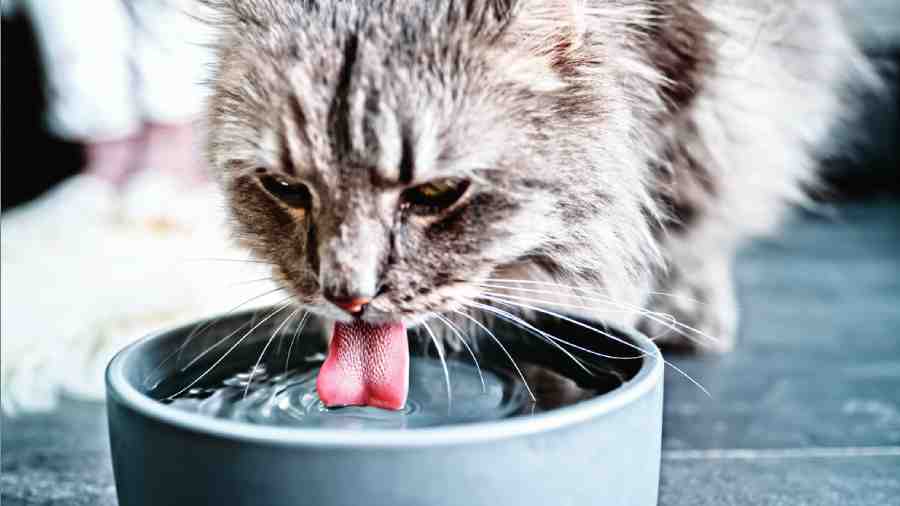
These infections may cause high temperature in the pet, anaemia, jaundice, renal impairment, vomiting and, if not treated timely may, even prove fatal. Keeping these in mind, it is advised to use anti-tick medications including tablets, sprays, powder or shampoo as per the veterinarian’s advice. The same preventive measures can be followed for fleas, which will help prevent flea-bite dermatitis and other associated problems.

4. Grooming- Periodical grooming with the help of a skilled groomer will help your furry friend stay relaxed and comfortable despite the heat. Proper washing of the fur, appropriate drying, thorough brushing and nail trimming are included in a complete grooming protocol. A trendy haircut for summer is always appreciated but again, zero trimming or a total shave-down will interfere in their natural thermo-regulatory mechanism. Regular bathing is not advised either as it may invite unwanted fungal infections. Pets can be bathed twice a week in summer months.
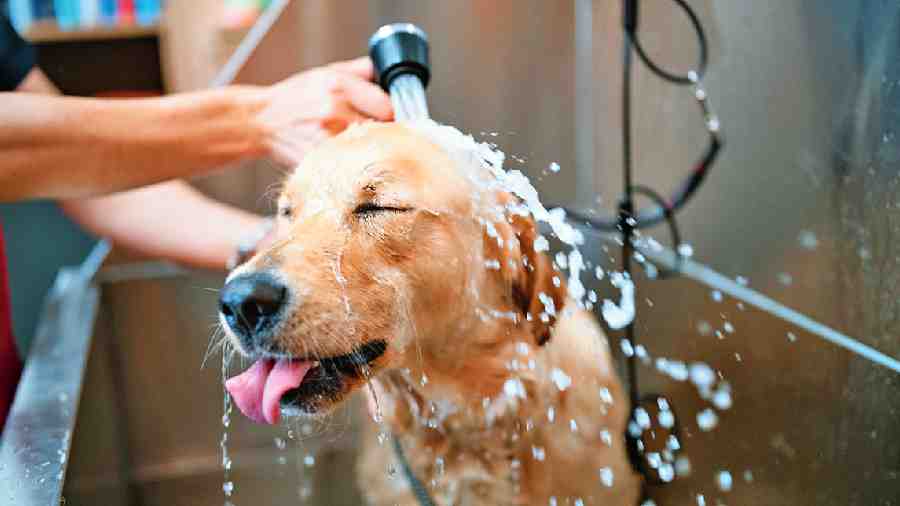
5. Swimming- Swimming is an excellent form of exercise for your furry companions. It does wonders for their overall health. It strengthens the muscles and provides a good amount of cardiac workout. There are very few swimming pools for pets in our city but if possible, it is highly recommended.
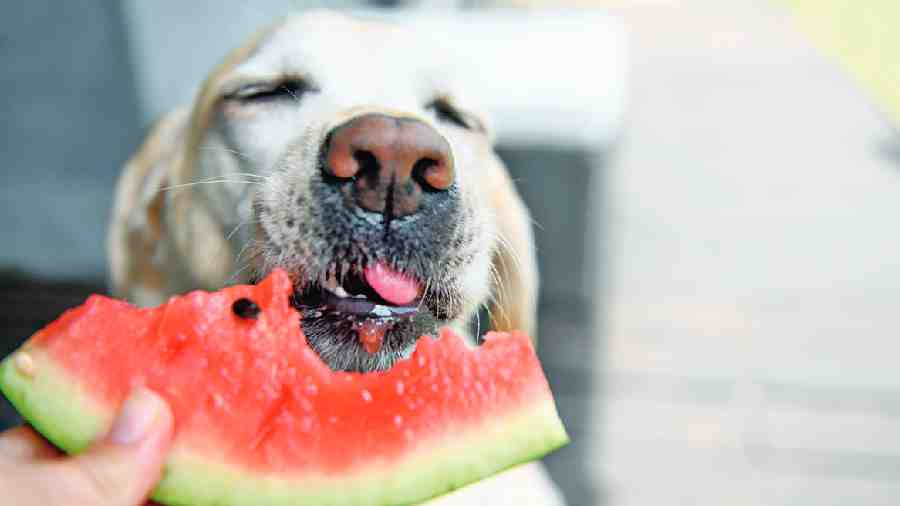
6. Diet- The most frequent complain a veterinarian receives from pet parents in summer is that their companion fur ball is not taking meals properly. This is a genuine problem and we see its effect in marked weight loss in dogs this season.
It is common to see breeds like Siberian Huskies, Saint Bernards, French Bulldogs, Golden Retrievers, Chow Chows and Pugs brought to clinics with the problem of loss of appetite. They eat less than normal due to their intolerance to the heat. So add fruits like watermelon to their diet but remember to remove their seeds. Cats can also relish this thirst-quenching fruit. Cucumber, the occasional mango, and the super food yogurt may help pet parents overcome their problem. Cats may show an inclination towards packaged wet foods this season.
7. Travel- While your pet may enjoy car rides, never leave him or her alone in a closed car while you run out to a mall or elsewhere. It doesn’t matter if the AC is on or otherwise; never leave them alone as it may lead to suffocation.
8. Elderly care- Older dogs need extra care and affection in summer months. They are vulnerable to inclement weather and may become lethargic and want nothing more than to sleep all day. Your vet may prescribe blood tests at such times to eliminate the chance of health complications.
9. Deworming- Should you notice any abnormal behaviour in your pet, rush to the vet. Vaccinations for cats and dogs must not be delayed and proper deworming schedules must also be followed.
10. Street animals- Stray animals suffer tremendously during heat waves. Besides having to find cool shelters they also need to find ample food and water. Here a salute must be conveyed to local caregivers who take it upon themselves to feed animals tirelessly. A positive humane approach from all residents may make life better for these animals.
So keep a container with clean drinking water beside your doorstep, rooftop, verandah for stray animals and birds. Pet-specific ORS can be added to the water but it is not necessary. Plain water suffices.
